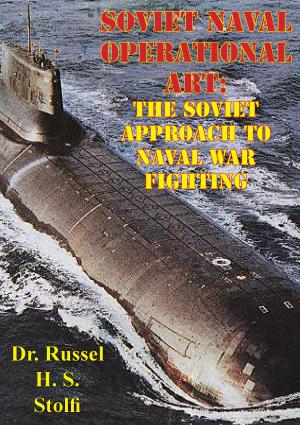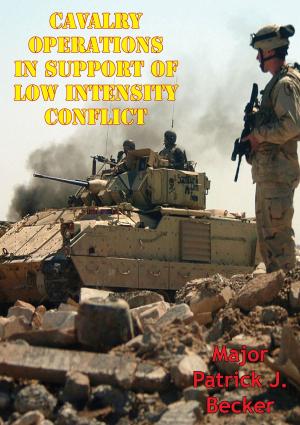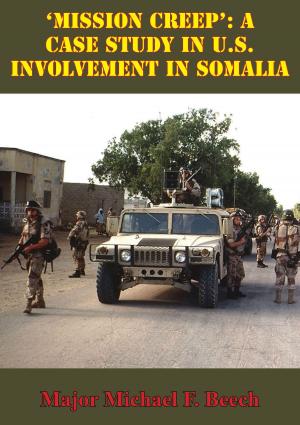Interview with Col. Joseph Buche - 101st Airborne Division
Nonfiction, History, Middle East, Persian Gulf War, Military| Author: | Dr. Tom Bruscino | ISBN: | 9781782893301 |
| Publisher: | Tannenberg Publishing | Publication: | August 15, 2014 |
| Imprint: | Tannenberg Publishing | Language: | English |
| Author: | Dr. Tom Bruscino |
| ISBN: | 9781782893301 |
| Publisher: | Tannenberg Publishing |
| Publication: | August 15, 2014 |
| Imprint: | Tannenberg Publishing |
| Language: | English |
Having assumed command of 3rd Battalion, 187th Infantry Regiment, 101st Airborne Division on D-Day, 6 June 2003, Colonel Joseph Buche initially deployed around the Tall Afar border region before his unit redeployed on short notice to the Al Qaim area where it played a central role in the success of Operation Rifles Blitz...Alerted that 3-187 should be prepared for operations in Najaf or Karbala then Fallujah, the operation in and around the Iraqi-Syrian border town of Al Qaim came as a surprise. "It came out of the blue" said Buche. "I’d never heard of Husaybah or Al Qaim, Iraq." Iron Hammer - 3-187’s piece of Rifles Blitz - proved challenging, including the move into a new area of operations and the inherent tensions between the missions assigned...He emphasized several factors which contributed to the success of Rifles Blitz, including the reliability of their interpreters, the integration of psychological operations and information operations into the unit’s scheme of maneuver, the ability to mass a lot of soldiers on the ground, the capability of trusted staff officers, and the matching of unit missions with the personalities of unit commanders. The need to establish a position of strength visible to the Iraqi people, he insists, is an imperative for successfully dealing with the populace..."Part of what I wanted to do" Buche added, "was to let any bad guys know that hell was coming to breakfast." Looking back, he proudly boasts that the operation was so successful that the enemy simply failed to fight. "I didn’t have a hard time with not having any firefights in that operation at all. I took pride in it because, to me, that was evidence that those company commanders and troopers out there had maneuvered so well that the enemy never found themselves in a position of advantage where they wanted to engage us."
Having assumed command of 3rd Battalion, 187th Infantry Regiment, 101st Airborne Division on D-Day, 6 June 2003, Colonel Joseph Buche initially deployed around the Tall Afar border region before his unit redeployed on short notice to the Al Qaim area where it played a central role in the success of Operation Rifles Blitz...Alerted that 3-187 should be prepared for operations in Najaf or Karbala then Fallujah, the operation in and around the Iraqi-Syrian border town of Al Qaim came as a surprise. "It came out of the blue" said Buche. "I’d never heard of Husaybah or Al Qaim, Iraq." Iron Hammer - 3-187’s piece of Rifles Blitz - proved challenging, including the move into a new area of operations and the inherent tensions between the missions assigned...He emphasized several factors which contributed to the success of Rifles Blitz, including the reliability of their interpreters, the integration of psychological operations and information operations into the unit’s scheme of maneuver, the ability to mass a lot of soldiers on the ground, the capability of trusted staff officers, and the matching of unit missions with the personalities of unit commanders. The need to establish a position of strength visible to the Iraqi people, he insists, is an imperative for successfully dealing with the populace..."Part of what I wanted to do" Buche added, "was to let any bad guys know that hell was coming to breakfast." Looking back, he proudly boasts that the operation was so successful that the enemy simply failed to fight. "I didn’t have a hard time with not having any firefights in that operation at all. I took pride in it because, to me, that was evidence that those company commanders and troopers out there had maneuvered so well that the enemy never found themselves in a position of advantage where they wanted to engage us."


![Cover of the book Vanguard Of Valor : Small Unit Actions In Afghanistan Vol. I [Illustrated Edition] by Dr. Tom Bruscino](https://www.kuoky.com/images/2014/august/300x300/9781782894957-aWmw_300x.jpg)

![Cover of the book U.S. Marines in Iraq, 2004 - 2005: Into the Fray: U.S. Marines in the Global War on Terror [Illustrated Edition] by Dr. Tom Bruscino](https://www.kuoky.com/images/2014/august/300x300/9781782895442-RHoP_300x.jpg)
![Cover of the book Block By Block: The Challenges Of Urban Operations [Illustrated Edition] by Dr. Tom Bruscino](https://www.kuoky.com/images/2014/august/300x300/9781782897781-zM5J_300x.jpg)








![Cover of the book Airborne Operations In World War II, European Theater [Illustrated Edition] by Dr. Tom Bruscino](https://www.kuoky.com/images/2015/november/300x300/9781786252975-y4Y7_300x.jpg)
